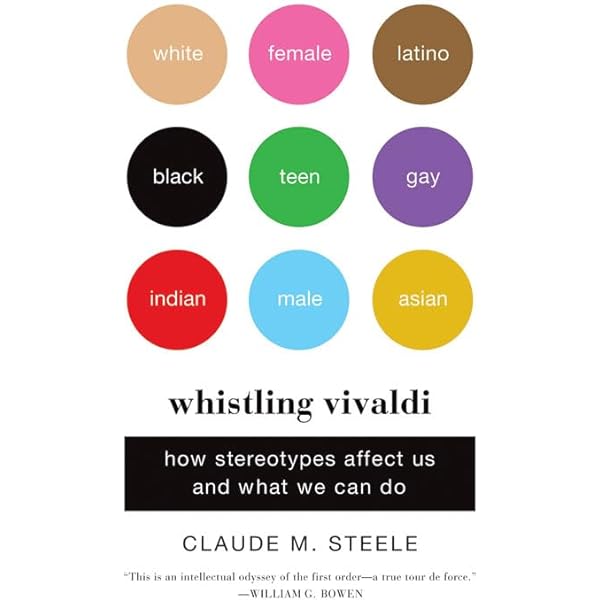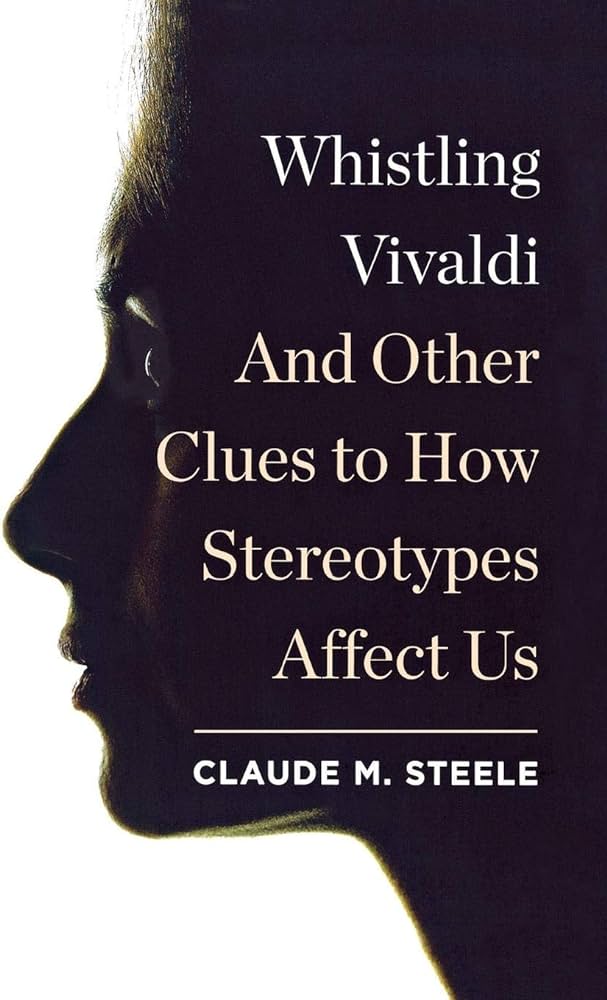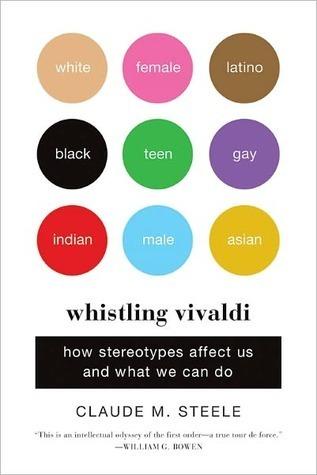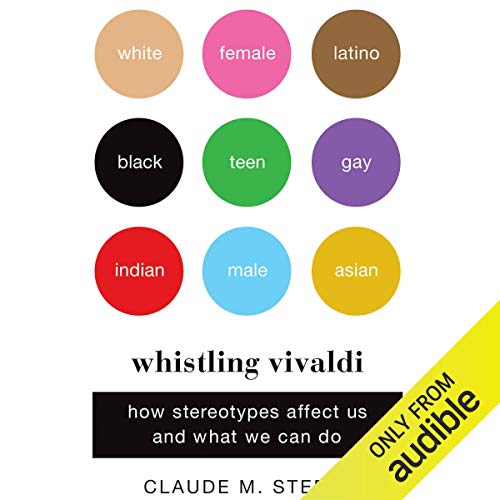Claude M. Steele’s “Whistling Vivaldi” audiobook explores the impact of stereotypes on behavior and performance. Steele delves into identity and the societal pressures faced by different groups.
Claude M. Steele’s “Whistling Vivaldi” sheds light on the profound effects of stereotypes. Steele introduces the concept of stereotype threat, where individuals perform worse when they fear confirming negative stereotypes about their group. This book provides deep insights into how societal biases shape our experiences and behaviors.
Steele’s extensive research and relatable anecdotes make complex psychological concepts accessible. “Whistling Vivaldi” is essential reading for anyone interested in social psychology, education, and equality. By understanding stereotype threat, we can work towards creating a more inclusive and fair society. This audiobook is both enlightening and thought-provoking.

Credit: www.amazon.com
The Genesis Of Stereotype Threat
Claude M. Steele’s Whistling Vivaldi delves deep into the concept of stereotype threat. This groundbreaking work explores how stereotypes affect behavior and performance. Steele’s research sheds light on how societal labels influence individuals, often unconsciously.
Early Experiments
Steele’s journey began with a series of early experiments. These experiments aimed to understand how stereotypes impacted students. The first study involved African American students taking a challenging verbal exam. The results were eye-opening.
Students under stereotype threat performed worse than others. This performance gap highlighted the psychological burden of negative stereotypes. Steele and his team replicated these findings across various groups.
Another experiment involved female students and math tests. When reminded of gender stereotypes, their performance declined. These early experiments laid the groundwork for defining stereotype threat.
Defining Stereotype Threat
Stereotype threat is a situational predicament. It arises when individuals feel at risk of confirming negative stereotypes. This threat can cause anxiety and hinder performance.
Steele defines stereotype threat as a concern about being judged based on group stereotypes. This concern is enough to impair cognitive functions. The fear of confirming stereotypes creates a self-fulfilling prophecy.
For example, a student might underperform on a test due to stereotype threat. This underperformance then reinforces the negative stereotype. This cycle can be difficult to break, affecting many aspects of life.
Understanding stereotype threat is crucial. It helps in creating environments that minimize its impact. Steele’s work in Whistling Vivaldi provides valuable insights into this phenomenon.

Credit: www.amazon.com
Impact On Identity And Performance
Claude M. Steele’s audiobook, Whistling Vivaldi, dives deep into the psychological impacts of stereotypes. This work explores how identity shapes our performance in various areas of life. The audiobook reveals the subtle, yet powerful, influence of societal expectations on our behavior and achievements. By examining these effects, Steele provides insights into how we can overcome these challenges.
Effects On Academic Achievement
Steele’s research shows that stereotypes can affect academic performance. Students who are aware of negative stereotypes about their group may perform worse. This phenomenon is known as stereotype threat. It can lead to anxiety and reduced test scores. For example:
- Minority students may feel pressure to counteract stereotypes about their intelligence.
- Female students in STEM fields may experience doubt about their abilities.
Understanding stereotype threat can help educators create supportive environments. This could involve:
- Promoting a growth mindset.
- Providing role models from diverse backgrounds.
- Encouraging collaborative learning.
Beyond The Classroom: Social Implications
Stereotype threat doesn’t just impact academics. It also affects social interactions and self-esteem. People may change their behavior to avoid confirming stereotypes. This can lead to:
- Isolation from certain social groups.
- Stress and mental health issues.
Steele’s audiobook suggests practical ways to combat these issues. These include:
- Creating inclusive environments.
- Encouraging open dialogue about stereotypes.
- Fostering self-affirmation practices.
By addressing these social implications, we can build more supportive communities. Steele’s insights offer a roadmap for positive change.
Strategies For Mitigating Stereotype Threat
Claude M. Steele’s Whistling Vivaldi offers valuable insights into mitigating stereotype threat. Understanding these strategies can help create a more inclusive environment.
Role Of Self-affirmation
One powerful strategy is self-affirmation. This involves reflecting on personal values and achievements.
- Write about your values.
- Think of past successes.
- Remind yourself of your strengths.
Self-affirmation helps reduce stress and boosts confidence. It makes you feel good about yourself. This can help you perform better.
Institutional Approaches
Institutions also have a role in reducing stereotype threat. They can implement several strategies:
| Strategy | Description |
|---|---|
| Inclusive Curriculum | Include diverse perspectives in the curriculum. |
| Training Programs | Offer training on diversity and inclusion. |
| Support Systems | Provide support groups and mentors. |
These approaches create a supportive environment. They help everyone feel valued and included.

Credit: www.bookey.app
Conclusion
Claude M. Steele’s “Whistling Vivaldi” audiobook offers profound insights into stereotypes and identity. This compelling narrative is both enlightening and transformative. Listening to it can change your perspective on social dynamics. Don’t miss out on this opportunity to expand your understanding.
Dive into “Whistling Vivaldi” and let its wisdom guide you.



